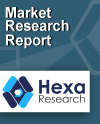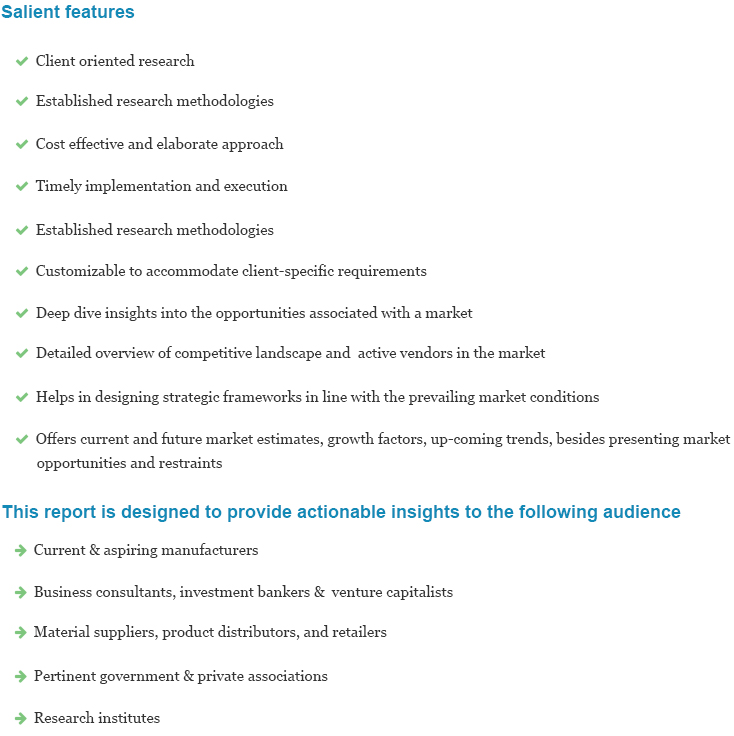
Bio Based Polyethylene Terephthalate (PET) Market - Market Size, Application Analysis, Regional Outlook, Competitive Strategies and Forecasts To 2024
- Published: June, 2015
- Format: Electronic (PDF)
- Number of pages: 64
- Industry: Specialty & Fine Chemicals
The growing awareness about sustainability in the general populace, the depleting sources of oil and petroleum and the ever increasing demand for PET products has largely escalated the demand for a bio based PET variant. Bio based Polyethylene Terephthalate is a biodegradable product that comprises of two main components, Mono-Ethylene Glycol (MEG) and Purified Terephthalic Acid (PTA). Of these two, the Mono-Ethylene Glycol (MEG) constitutes about 30% of the product whereas Purified Terephthalic Acid (PTA) constitutes the remaining product.
Mono-Ethylene Glycol (MEG) can be produced from natural plant sources (via fermentation to ethanol and dehydration to ethylene), but Purified Terephthalic Acid (PTA) remains a product of traditional fossil fuels. Though the ultimate aim of this industry is to replace this PET with renewable source based version, considerable efforts are being put to commercialize bio based PET. The market of this bio based polyethylene terephthalate is expected to grow at a tremendous rate, with a CAGR of 68.25% globally over the period 2016-2024.
Owing to its agreeable properties like light-weight, clarity and resilience bio based PET finds a varied form of applications ranging from packaging to fibers, films, and so forth. Bio based PET hence caters to various industry uses like, manufacture tools, bags, beds, furniture, carpets, films, bottles, cups, and other packaging materials.
There is growing demand for the bio based PET due to various factors, of which the sustainability and economics are the major ones. The replacement of oil-based components with bio based is also a key driver in adoption bio based PT as oil is not a renewable resource. The use of naturally available substances in production is no longer just an Go green initiative but also acts as a catalyst in influencing the consumer specially in the packaging industry. But the associated costs of switching to bio based PET and the technical hiccups in producing a 100% bio based product may act as major hindrances in industries overall adoption.
The bio based PET market is segmented by application in ‘packaging’, ‘technical’, ‘consumer goods’, and others. Of these, the packaging industry has the largest market share and demand and is expected to be so in coming years due to growing demand of beverages in BRICS countries. Also the leading beverage manufacturers like Coca Cola and PepsiCo. are committed to using bio based products. The technical segment is constituted by electrical and automotive components and is fueled by the growing demand for light weight plastic materials.
Segmentation of Bio based PET market based on region is done in five major zones, namely, North America, Asia Pacific (APAC), Europe, Middle East and Africa (MEA), and Latin America. The European market leads globally in terms of market share closely followed by the North American market. But in coming years the Asia Pacific market is expected to grow most rapidly with ever increasing demand for beverages and consumer goods in China and India.
Some leading FMCG companies are involved in the manufacturing of bio based PET like Coca- Cola Co., PepsiCo. and Danone and are driving the major part of campaigning and promotional activities for the same. Other manufacturers include Toyota Tsusho, Teijin Limited, Anellotech Inc., Gevo Inc., Draths Corporation and Virent Inc. among others.
Intense competition is expected in this market owing to a few, but big brands competing against each other. These companies are continuously looking for better and new options and opportunities and use new product development and product differentiation as a major competitive edge. The overall industry being in its infancy stage, is heavily dependent on Research and Development and is expected to thrive on the same.
In 2015, major brand owners Coca-Cola Co., Ford Motor Co., H.J. Heinz Co., Nike Inc. and Procter & Gamble Co. came together to form Plant PET Technology Collaborative’ a collaboration to promote and develop the production and use of plant based PET material and fiber.
PepsiCo., in 2011 announced that it had developed a 100% bio-sourced PET bottle in the laboratory and can be commercialized soon. Whereas, companies such as, Gevo Inc., Draths Corp. have announced their capability to manufacture PET from renewable sources.

Choose License Type
- World's largest premium report database
- Transparent pre & post sale customer engagement model
- Unparalleled flexibility in terms of rendering services
- Safe & secure web experience
- 24*5 Research support service
